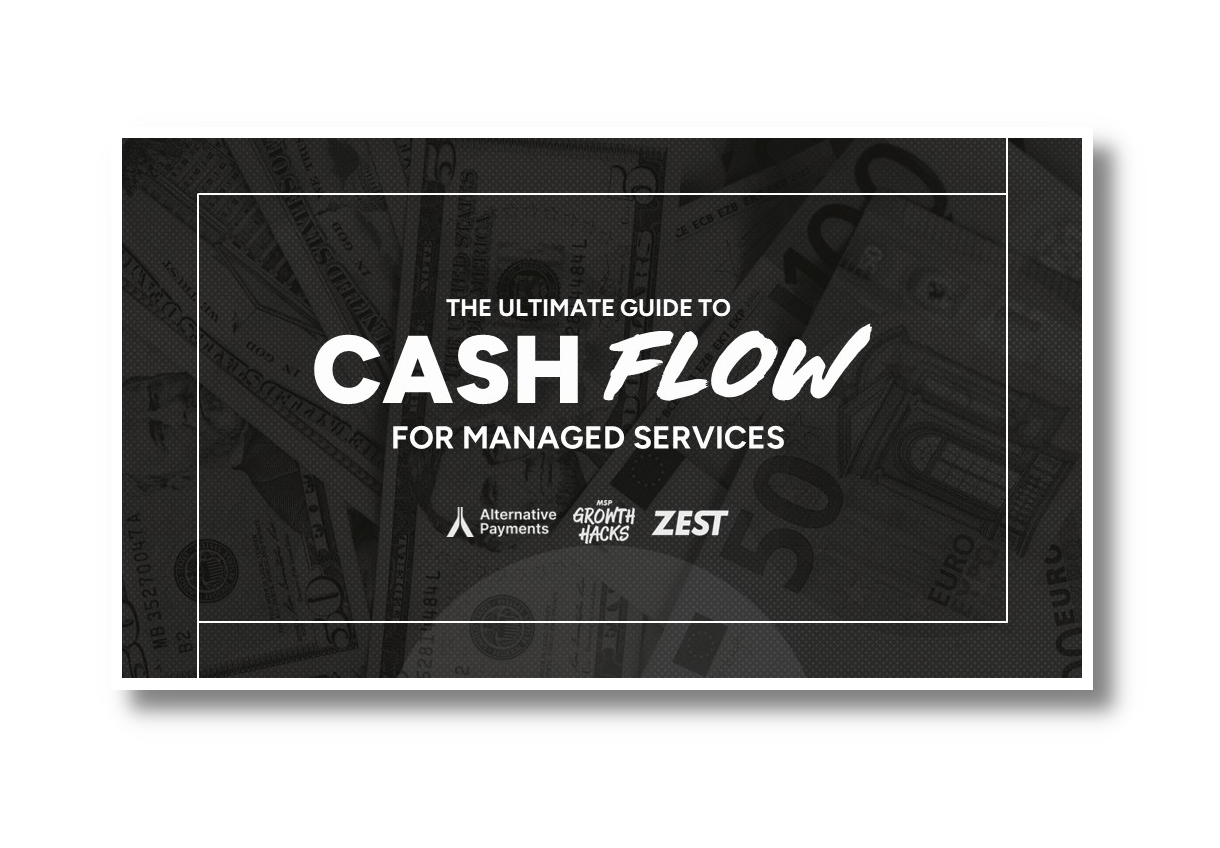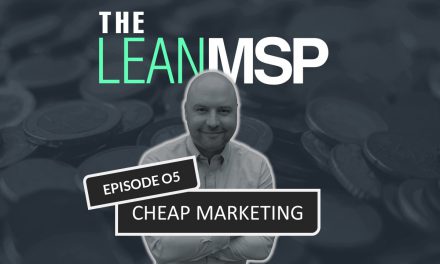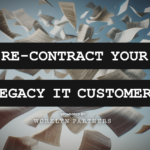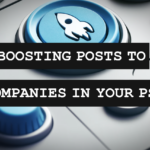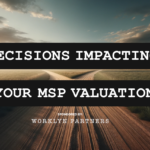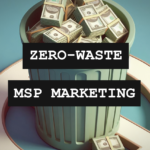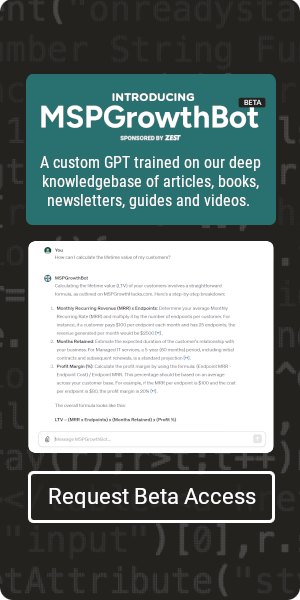The Answers That You Always Thought You Needed To Grow Your MSP
If you are a Managed Service Provider your business is more unique than you may think. This is true from the way that you package services, the verticals you specialize in, or even how you operate your business. Despite this fact, I find that most MSPs seem to pose the same questions around Sales & Marketing (or at least try to compress their thoughts and feelings the same way). This has always been fascinating to me, primarily because the way they formulate their questions is more a reflection of their own perception of the solution than an actual inquiry.
For example, think about what questions you might ask if you wanted to lose weight. “What exercises should I do?” “What diet should I follow?” “Where can I get healthier food?” These questions reflect your perception of what you need to do to lose weight, not necessarily a complete way to do so. If I told you that Whole Foods sells the healthiest food available, knowing this information would answer your question but it probably would not put you any closer to your goal of losing weight.
Plot Twist
The purpose of this post is not to provide a list of FAQs and some blanket answers. While that may be helpful on the surface, the real value is in knowing whether or not you are even asking the right questions. To do this, I am going to cycle through the most common questions that I receive and offer you the shortest answer I can provide along with some more “meaty” food-for-thought to help you better identify the root cause of your problem.
Should I hire a salesperson or marketer?
Short Answer
If your awesome marketing has produced too many leads in your pipeline, hire a Salesperson. If you have the best Salespeople around but don’t have enough leads to keep them busy, hire a Marketer. If neither of these circumstances are exactly true, then you may not want to hire anyone until you have a clear understanding of what needs your new-hire will fulfill (and a plan for them to succeed).
Long Answer
Hiring a Salesperson with no marketing support can not only put this person in a position to fail but it also puts your business into a “direct response” mindset that is difficult to shake. At the same time, having the ability to generate leads, but not having anyone to close them is just as big of an issue and can be incredibly wasteful.
Sales & Marketing are like peanut butter and jelly. You really need the right proportion of both in order to make that magically simple sandwich that everyone loves. While you can’t always find someone that is equally skilled in both sales and marketing (nor should you look), you should combine internal and external resources to balance these efforts as best as possible. If you have to make a decision on what to invest in first, then it would make sense to first invest in marketing since their responsibilities will lie at the top of the customer funnel.
The Ultimate Guide To Cash Flow For Managed Services
Sponsored by Alternative Payments & Zest
What should my marketing budget be?
Short Answer
You should spend as much money as possible on marketing campaigns that are working and as little as possible on campaigns that do not. If you do not know whether or not your campaigns are working, then you should not spend anything until you have a way to better evaluate them.
Long Answer
Marketing is not a static activity. While you should always have a fundamental strategy going in, the activities that complete this strategy will continue to change each and every month that goes by. This is because most marketing costs are driven by competition and/or subjective value which are both incredibly volatile. In reality, marketing is supposed to make you money, not cost you money, and this is why “budgeting” will often hinder its potential.
When you are running a campaign that is working and producing great results, you should consider going “all in” as soon as possible. Much like these windows open, they close just as quickly and you will definitely regret not spending more once they do. There was a time last year when we were able to generate email subscribers through LinkedIn Ads for less than $5 each. This is because competition was low and engagement was incredibly high. Since that time, our costs have doubled for essentially the same campaigns and the same result. This is why we are thankful that we grabbed as much traffic as we could during this time when it was cheap.
How often should I post on social media?
Short Answer
You should post as much 100% original and valuable content (blog articles, videos, podcast episodes, etc.) as you can per week across your social accounts until each additional posts no longer produces net positive results. If what you are posting is not original, does not have value, or is not likely to generate engagement, then don’t post it at all. Posting frequently can create awareness, but if it offers no substance it will not add to your funnel and may take away impressions from content that does.
Long Answer
Depending on what gurus you follow, you may think that you need to post every day (multiple times per day) in order to create awareness and grow your Managed Services brand. From my experience, there is a point where work exceeds the benefits and you are actually diminishing your own returns the more you do. This is especially true when posting your content to LinkedIn (which is my preferred place for it).
I have found that posting five or more times per week often produces fewer overall impressions than when posting two or three times. It appears by the numbers that the more frequent I post, the less engagement I receive on each one, which limits how many organic impressions LinkedIn will generate for me on each post. This is why having a few really thoughtful and unique pieces that produce high engagement will often drive more traffic than posting content of little value everyday. Other platforms have different algorithms and may require more frequency to achieve results, but this is the exact reason why you may want want avoid those platforms as your primary place of engagement.
The Ultimate Guide To Cash Flow For Managed Services
Sponsored by Alternative Payments & Zest
Does social selling or prospecting actually work?
Short Answer
Social selling will generate basic levels of awareness for you and your company. It will also generate an occasional sales appointment when you catch someone at the perfect time. What it will not do is build trust around your brand so that the appointments you generate are easily closed. This must be done through nurturing and other marketing activities that should be done in conjunction with your social selling efforts.
Long Answer
The reason some MSPs fail when social selling on LinkedIn is because they treat it as if it is an endless pool of people that are 100% qualified to do business with them. When someone fails to make a connection or politely says “no thanks,” the MSP simply moves on and fires off their next 100 requests to unsuspecting victims. This direct response mentality is not a sustainable approach and does little to build long term value for your company.
If you are asking for everything at once and get denied, you are essentially burning a potential prospect that could be a great fit, but now is essentially unapproachable in the future. Instead, look to use a simple and relevant message to make a connection which will essentially earn you a “subscriber” on the platform and then let your content do the talking. Eventually, every time you post you will generate activity that moves your audience a little bit further through the funnel, becoming a more sustainable system. This is earns your business more equity with your audience than if you are just wandering around their DMs and hoping to stumble across a deal.
Am I using the right value proposition?
Short Answer
If your competitor could copy your messaging without making any major operational changes to their business, then your value proposition is likely neither unique nor valuable. It should be a fundamental difference in the way you deliver services, not just a different way to describe the expectations your customers already have. For example, “great support” is not a differentiator. “Live chat support in 30 seconds or less” is a differentiator.
Long Answer
Nailing down your unique value proposition is not an easy feat and takes more time than most realize. In my experience, you really need to “pitch through” several variations of what you can offer to boil down the core needs of your prospects and then begin building your value proposition off of their feedback. You will know immediately when you find something that works because your prospect’s ears will perk up like a golden retriever and each pitch thereafter will be met by a more welcoming audience.
Another thing worth noting is that value propositions are subject to change. What is important to your prospects and customers right now may not be as relevant 12 months from now. You will likely need to tweak your offering every year just to ensure that you are keeping up with current needs. If you are still using the same pitch that you used 5 years ago, then it may be worth a second look to ensure that what you are offering is the best possible fit for today’s market.

SPONSORED BY ZEST

